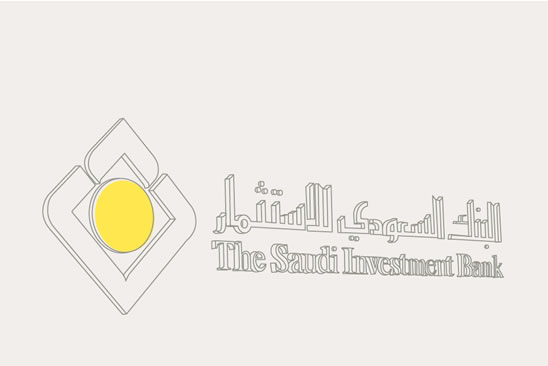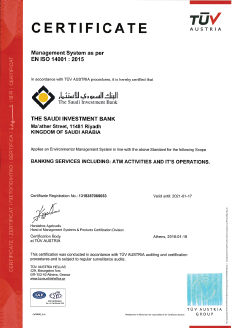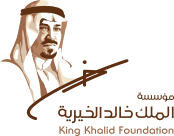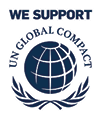Institutional Capital

The Bank’s institutional capital consists of the values, ethics, policies, systems and procedures that guide all its activities and promote sustainability. The ethos of responsibility is ingrained in the Bank’s culture. We seek to be recognised as responsible, by all our stakeholder groups. The principle of responsibility permeates our product and service design, our customer service, our systems and procedures and the security and integrity of our data. The Bank has developed supporting mechanisms to ensure its sustainability through availability of accurate, timely and well-visualised data for decision-making.
Our values
Institutional capital is the values, ethics, policies, systems and procedures that govern the Bank’s activities. SAIB’s approach to sustainability rests on five strategic pillars, which guide all our activities, all of which have some bearing on institutional capital. However, the one which most underpins our institutional capital structure is Takleef (responsibility).
Further information on the Bank’s sustainability pillars could be found under The Saudi Investment Bank on page 8.
Responsibility is thus ingrained into the Bank’s activities. We endeavour to be recognised by our stakeholder groups inclusive of customers, employees, business partners, suppliers, investors and the general public as an ethical and responsible Bank. We practice the principle of responsibility in our product and service design, in our customer service, in our systems and procedures and in the security and integrity of our data. We also scrupulously comply with not only the letter but also the spirit of all Saudi laws relating to human rights, anti–corruption and the environment. Under the direction of the Board of Directors and the Board Risk Committee we seek to carry out our lending and investment issues with an understanding of environmental, social and governance issues.
The Bank also carries out a large number environmental and social responsibility programmes, details of which are given under Social and Environmental Capital found on pages 102 to 110.
Policies and governance
While the Bank seeks to be ethical, effective and consistent in all aspects of our business, to translate these values into practice we need clear policies and guidelines; to implement them in turn we need practical mechanisms, systems and procedures. SAIB has clearly documented policies covering all important business aspects including investor relations, procurement, product and service development, investment, lending, risk management, borrowing, customer relations, marketing, information technology and information security. Our policies also ensure we comply with the laws and regulations of the Kingdom of Saudi Arabia as well as international guidelines for ethical behaviour. Our Code of Conduct sets out how employees or management should act in cases of inside information, conflict of interest or whistleblowing.
Further information on the Bank’s governance framework and policies as well as activities carried out during the year in relation to governance could be found under Stewardship on page 21.
The Bank also actively participates in both local and international committees and groups that align with its own business and sustainability goals. These engagements, in certain instances, include policy development as well. Some of the banking sector committees the Bank participate include SAMA committees such as the CEO Committee, the Risk Committee and the CFO Committee. The Bank also plays an active role in the Saudi Media and Banking Awareness Committee.
Systems and Processes
One of the mechanisms SAIB has developed to ensure sustainability through good corporate governance is a Sustainability Management Dashboard System (SDMS) to collect, store, analyse, visualise and utilise data related to sustainability performance. The system has been devised to enable regular (monthly or quarterly) collection of information efficiently with minimum labour. It provides a unified and secure storage for information and facilitates automated calculation and visualisation of performance, while ensuring more accurate information output.
When developing the system, the goals and objectives included improved decision making by providing timely and accurate information in the hands of decision-makers; regular tracking and internal reporting of performance against sustainability goals being a basis for continuous improvement; cost efficiency by more efficient resource utilisation at Branch level; better communication and presentation of information both internally and externally. All departments are stakeholders in SDMS, but the principal stakeholders include the CEO, Sustainability Committee and the Corporate Communications Department.
We continued to re-engineer the way we do business in order to gain efficiency, doing more with fewer resources and improving turnaround time for customers by carrying out various automation initiatives. A number of significant products and improvements in systems and services were launched during the year which gave value to our customers. New services included automated corporate account opening via CRM; alert service for non-individual customers; and an appointment system in branches to shorten waiting/service times. Some of the new products were Shares Finance being rolled out to all branches, Taif University non-profit education loan, the Travel Companion Financial Product and launching of the Visa Infinite debit card with concierge and lounge access services. The Bank’s loyalty programmes – Aseel and Woow, continued to exceed expectations of customers and partners.
Our operations group successfully carried out several implementations of new products, systems, processes and controls over the year. Some of the new products and systems implemented were TI Plus (Trade Innovation) with many new features, the integrated Trade Service Offering with Aramco through SWIFT and new functionalities on credit cards. Process innovations were also implemented in credit cards, travel cards, automation of GL posting, automation of early termination of deals and mortgage finance among others. New controls were also introduced to minimise risks to the Bank including Marine Cargo Insurance programme for import LCs and automated blocking of accounts for recovery of credit card dues.
Financial Planning and Control Group (FPC) continued the implementation of the data warehouse project with the support of IT MIS. The unit also completed Phase I of the data discovery programme with the assistance of Rockit Astra and Protiviti and is currently planning to move to Phase II to include additional systems. The Bank-wide reporting automation project continued on to the next phase with the completion of Phase I SAMA reporting. FPC is now moving forward with the assistance of Fintellix to automate Bank-wide performance and business unit reporting, along with the remaining supplemental reports required before the Bank’s former MIS system is shut down. Further automation in of daily balance sheet aspects and derivative reporting was carried out to reduce volume of manual work as well as to improve management and monitoring.
Digital strategy and information technology
The Bank’s digital strategy and innovativeness is a major source of our competitive edge and makes us stand out in the market. Several major enhancements were introduced to the existing systems during the year. These included enhancements to prepaid cards including the introduction of a household workers card; introducing new templates into the secure printing platform; and a new state-of–the-art core system based on virtualised concept.
The Information Technology shared services group also completed several major projects during the year, some of which were Direct Sales Agent (DSA); new Trade Innovation System; budgeting and planning system; and Branches Appointment System.
In catering to emerging and dynamic security threats, a new dedicated Security Operations Centre (SOC) has been formed by the Bank’s IT Group. This section will enable SAIB to proactively and effectively review and monitor any attack and incident on a 24-hour 365-day basis. Thus far over 120 systems have been integrated with SOC for centralised logging, review and management.
Organisational changes
To implement our new strategy and align SAIB more with Vision 2030, Commercial Banking Business Group (CBBG) was established with a focus on smaller size business segments – the mid-corporate segment and SME, which migrated across to corporate banking from Retail Banking.
Credit rating
A recognition that SAIB has achieved for its governance is a credit rating of BBB/Stable/A-2 in the Standard & Poor global ratings. The stable rating is based on the expectation that the Bank’s business and financial profiles will remain basically unchanged over the next two years.
Further information on the Bank’s credit ratings could be found under Financial Capital on page 65.
Accolades
|
Rated as “The Best Saudi Bank in Service Quality Index” by SAMA |
|
Global Banking and Finance Review
|
|
International Finance Magazine
|
|
The only KSA Bank ranked amongst all Saudi listed companies at the 1st Corporate Governance Office Conference hosted at Alfaisal University 2017 in collaboration with Harvard University. |
|
Awarded the ISO 14001:2015 for Banking Services Including ATM Activities and Operations
|
|
Ambassadors for the King Khalid Award for Responsible Competitiveness (RC)
Nominated for the Bank’s past performance and practices and for the leading role it plays in promoting sustainability and responsible competitiveness. |
|
UN Global Compact Status
SAIB retained for a 2nd year its UN Global Compact (GC) Status based on its Communication on Progress (COP) submission. The Bank’s COP met all minimum requirements and qualified for the GC Active Level. |
|
Registration of ICAP with UNPRI
Completed the process of registering Alistithmar Capital (ICAP) with United Nations Principles of Responsible Investments (UNPRI). ICAP is the 2nd entity in KSA to register with UNPRI. This will lead to significant value addition to the Bank’s Group profile for the purpose of King Khalid Award assessment. |
|
Global Reporting Initiative (GRI)
SAIB retained its GRI Gold Membership status based on its Sustainability Reporting and publicly available disclosures on Sustainability. |
|
Sustainability Report SAIB was the first Bank globally and one of 10 global companies to have issued a Sustainability Report using the new Global Reporting Initiative (GRI) Standards reporting methodology. |









